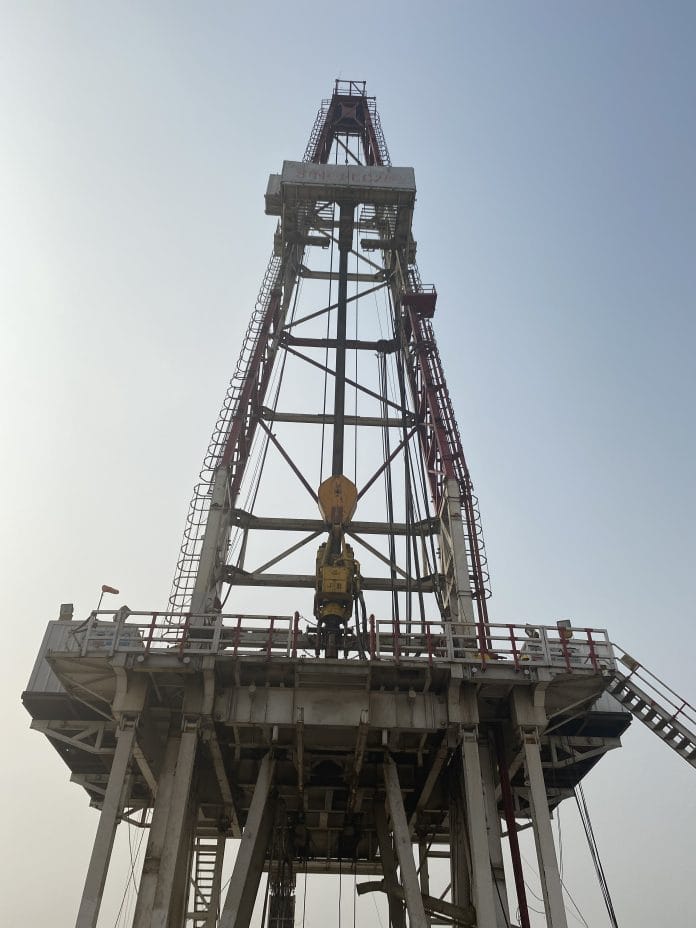The ministries of Power and Energy, Food and Agriculture have sought $6.12 billion over the next four months to pay for LNG, power, oil, food, and fertiliser import bills, ensuring the country’s food and energy security.
The overdue bills of these ministries, along with the repayment of an ITFC loan by the Bangladesh Petroleum Corporation, are included in this requirement.
The ministries placed the request at a time when multinational oil companies and LNG suppliers have threatened to halt oil and natural gas supplies due to unpaid dues.
Some suppliers have already partially suspended electricity supply due to overdue payments. Additionally, new LNG suppliers are demanding extra costs for overdue payments.
The demand for dollars between March and June 2025 was discussed at a meeting today (March 16) focused on ensuring uninterrupted foreign exchange supply for public purchases, particularly LNG and fuel imports to power plants amid the ongoing hot summer.
Besides, the government will also import urea and non-urea fertilisers to ensure food security during the Boro cultivation season.
The meeting was chaired by Finance Adviser Dr Salehuddin Ahmed and attended by Power and Energy Adviser Muhammad Fauzul Kabir Khan, along with the Agriculture, Food, and Commerce Advisers.
Power, Energy, and Mineral Resources Require $5.17 Billion
According to meeting sources, the Ministry of Power, Energy, and Mineral Resources has requested US$5,165.88 million between March and June 2025 to clear overdue power and gas bills, as well as LNG and fuel import bills.
“We will require $1.15 billion between March and June to settle ongoing and overdue electricity bills,” an official of the Power Division said.
Of this amount, at least $743.25 million is needed to pay for imported Indian electricity. The remaining funds will be used for coal imports to fuel the 1,320MW Rampal and 1,200MW Matarbari power plants and to service non-concessional loans for power projects.
“We also have a disputed overdue payment with Adani,” an official added.
The government will need to provide Tk 8,344.24 crore in subsidies this fiscal year for importing electricity from India.
Additionally, the Energy and Mineral Resources Division has sought $1,671.2 million to import 36 LNG cargoes between March and June 2025. Another $1,715 million is needed to cover import bills and repay the ITFC loan within the same period.
The overdue payment burden for the Power Division stands at an additional $629 million between March and June 2025.
“We have requested $473 million on an emergency basis, as overdue bills increase the cost of importing LNG cargoes,” said EMRD Secretary Mohammed Saiful Islam.
I am hopeful of receiving the overdue payment by June 2025, he said.
Early February 2025, the Ministry of Power, Energy, and Mineral Resources has requested $4 billion in phases by June to address the looming power and energy crisis during the summer.
Food Security
The government aims to import 3.50 lakh metric tonnes of rice and 70,000 metric tonnes of wheat in the current fiscal year. So far, it has procured 3.11 lakh metric tonnes of wheat and 2.53 lakh metric tonnes of rice.
According to the Food Ministry, the government has an outstanding arrear of $43.24 million for rice procurement. An additional $255.17 million will be required for rice purchases by June 2025.
Moreover, $34.47 million will be needed for wheat procurement by 30 June 2025, with the current outstanding wheat procurement bills amounting to $18.72 million. In total, the government will require $611.43 million by June 2025 to ensure food security for the current fiscal year.
Fertiliser Procurement
The government will also need $600.95 million to import urea and non-urea fertilisers and procure raw materials for TSP and DAP production.
During the meeting, the Finance Adviser instructed the Finance Secretary and the Bangladesh Bank Governor to review and analyse inward and outward remittance flows and ensure necessary payments for an uninterrupted supply of power, energy, and food security.
Energy Economist’s Observation
Prof. Izaj Hossain, an Energy Economist and former teacher at BUET, said, “It’s impossible to allocate such a huge amount of dollars for the payment of bills for power and energy.”
“I appreciate the government’s efforts to overcome the crisis… but if you provide more comfort to consumers by offering maximum subsidies in power and energy, it may create pressure on the balance of payments,” he added.
The country’s foreign exchange reserve stood at $20.94 billion in February 2025.
Policy-Makers’ Commitment
The government plans to clear overdue payments amounting to approximately $700 million to international oil companies (IOCs) by the end of this month.
Power, Energy, and Mineral Resources Adviser Muhammad Fauzul Kabir Khan disclosed this plan to Just Energy News last week, emphasizing efforts to resolve mounting financial obligations amid growing pressure from both domestic and international stakeholders.
“We are committed to settling the overdue payments this month,” Khan said. He added that discussions with the Finance Adviser and the Bangladesh Bank Governor had been held to facilitate the payments.
Khan also revealed that the government had already incurred $25 million in interest due to payment delays and noted that LNG prices had surged as a result.
At the meeting, the Finance Adviser instructed the Finance Secretary and the Bangladesh Bank Governor to review and analyse the inward and outward dollar flows and make the necessary payments to ensure the uninterrupted supply of power, energy, and food security.
During the meeting, they also discussed introducing a higher Letter of Credit margin for the import of luxury items such as juices and cars.
Currently, car imports are enjoying a zero LC margin, official said.

